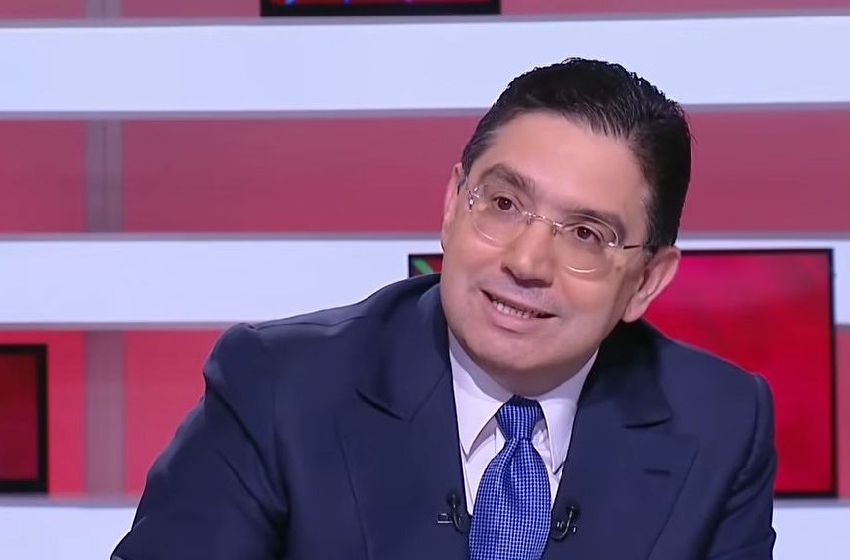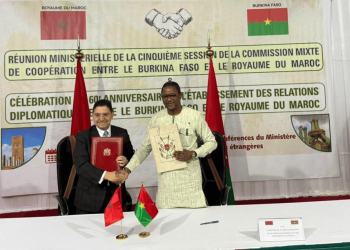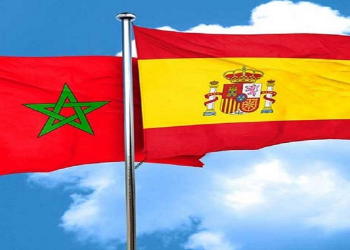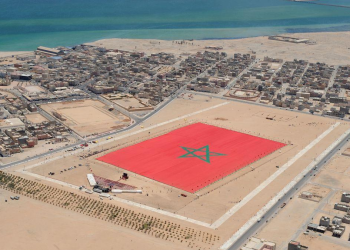UN Security Council Resolution 2797 on Moroccan Sahara is the result of HM King Mohammed VI’s 26 years of sustained efforts along with His personal commitment to this issue, said Morocco’s Foreign Minister Nasser Bourita.
In a special program broadcast on Saturday evening on channel 2M, Bourita highlighted that since His enthronement, HM the King has sought to move beyond the “hard-to-implement settlement and referendum” plan, which has remained deadlocked.
In 2007, He proposed the autonomy plan, making it the sole basis for negotiations on the Sahara and the initiative supported by major world powers, he recalled.
Bourita maintained that the Royal approach is grounded in a clear and strategic vision, that has led to the recognition by influential countries—particularly the United States and France—of the Moroccanness of the Sahara.
This achievement, he pointed out, is the fruit of the King’s daily follow-up and His direct interaction with heads of state on this issue.
He noted that HM the King’s approach to meeting all challenges was based on gradual aims, credibility, and concrete action to build trust with partners and interlocutors.
Bourita further stressed that HM the King’s far-sighted vision has made it possible to cooperate with major European powers that play an influential role in the Sahara issue, given their thorough understanding of the region, its history, and its geopolitical foundations.
On this occasion, Bourita reviewed the visits made by His Majesty the King to several African countries that had previously recognized the “puppet entity,” before later changing their position and acknowledging Morocco’s sovereignty over the Sahara—recalling Morocco’s return to the AU in 2017.
The same strategy, he continued, was applied with European countries, noting that 23 member states of the European Union now support Morocco’s autonomy initiative.
On the economic front, the minister highlighted the progress achieved regarding the Moroccan Sahara issue, recalling that U.S. Deputy Secretary of State Christopher Landau recently stated that the U.S. administration encourages American investments in the southern provinces.
He also mentioned the signing, on October 4, of the Morocco-EU agricultural agreement allowing agricultural products from the southern provinces access to the European market.
Bourita also mentioned France’s participation on October 9 in the Morocco-France Economic Forum held in Dakhla to explore new avenues of cooperation between the two countries.
He further recalled the signing, on October 17, of a maritime fisheries agreement between Morocco and Russia that includes the southern provinces, in addition to the significant initiative aimed at enabling Sahel countries to gain access to the Atlantic Ocean.
In this context, he underlined that the Security Council’s vote on October 31 constitutes a vote “in favor of the Morocco of His Majesty King Mohammed VI,” of the reforms undertaken, and of the progress achieved in several areas, notably women’s status and sustainable development, given the Sovereign’s credibility and international leadership.
He noted that this is the first time a UN resolution has referred to Morocco’s sovereignty over its Sahara. “Today, the autonomy plan has become a solution, no longer merely a proposal,” he said, describing it as “a historic resolution,” since no country voted against it.
(MAP: 02 November 2025)








